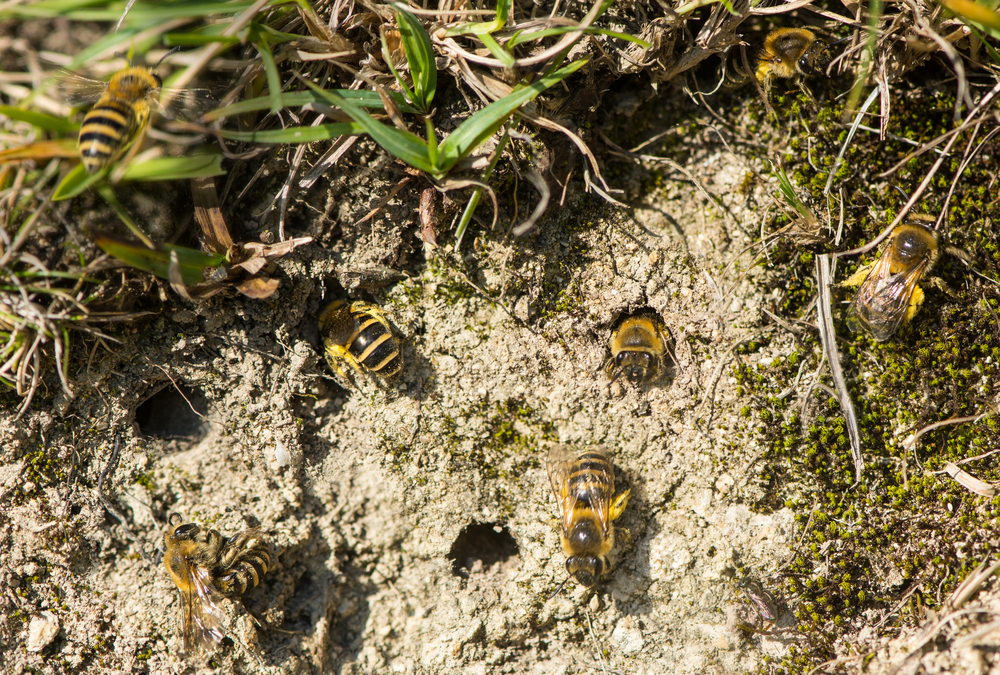Researchers Trying to Make Blue Orchard Bees Stay
May 31, 2017
Bee Colony Collapse, Honey Bees
Blue orchard bees, unlike their European honeybee cousins, are solitary bees that nest in cavities found in stems, wood, and even synthetic materials like paper tubes or cardboard. While a relatively unknown species, blue orchard bees may present an opportunity for farmers and orchard growers who are seeking an alternative for pollination services involving honeybees. Given that honeybee numbers are still suffering because of pesticides, CCD, diseases, and other such factors, it’s likely not surprising researchers are considering possible substitutes if they can’t successfully bring honeybee numbers back up.
New Study
A recent study, published in the American Entomological Society's Journal of Insect Science, indicated that blue orchard bees could be a workable option for cherry orchards, barring changes to how the nesting boxes were distributed in order to keep the bees at the orchard. This is crucial regarding their feasibility as profitable managed pollinators, especially since blue orchards aren’t known for sticking around a nesting site for more than one season. Commercial pollination practices with these bees haven’t been researched as well as those for honey bees, according to Dr. Natalie Boyle, a USDA entomologist and this new study’s lead author.
"Presently, the greatest challenge to using blue orchard bees for commercial pollination of orchard crops is their high rates of dispersal away from the orchard upon their release," Boyle said. "This study shows that by simply changing the availability and distribution of nesting sites in the orchard, we can substantially increase overall blue orchard bee nesting success in a commercially managed orchard." Regarding management of blue orchards, many have suggested one central large nesting site for them in a testing zone, with smaller nesting locations around the edge. Boyle tested this idea against an even design, spreading minor nest boxes throughout the testing area.
Results
The study’s results showed the bees successfully returned to both kinds of nesting sites, as in females yielded more new larvae than the initial bee count. However, the even distribution site produced considerably higher nesting via three measured factors: average living larvae per colony (45 percent more), average nest-tube habitation (33 percent more), and average larvae per specific nest tube (9 percent more).
The bee-return rate to “domesticated” nests is crucial since the main method of repopulating blue orchards if they scatter is catching them wild. "Commercial [blue orchard bee] pollination will only be economically feasible if sustainable year-to-year reproduction within orchards is achieved," Boyle said. The study didn’t evaluate the bees' influence on orchard yield or pollination, but Boyle is planning a second study this year.
"There is tremendous interest from both the blue orchard bee supplier community and orchard growers in developing management strategies that rely, either fully or in part, on managed blue orchard bee pollination," Boyle said. "We hope that this study provides practical information that orchardists can use to incorporate blue orchard bee pollination into their current management efforts, particularly with varieties that have been historically fruit set-limited when honeybees are used alone."
Photo via Likoper / Shutterstock


.jpg)



